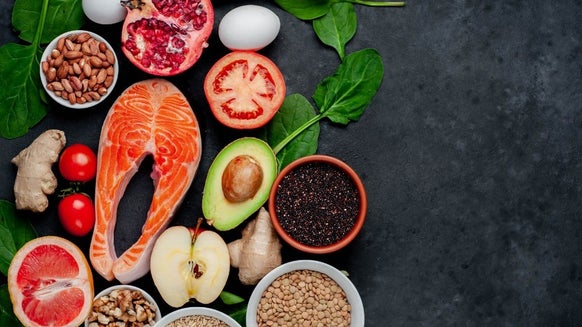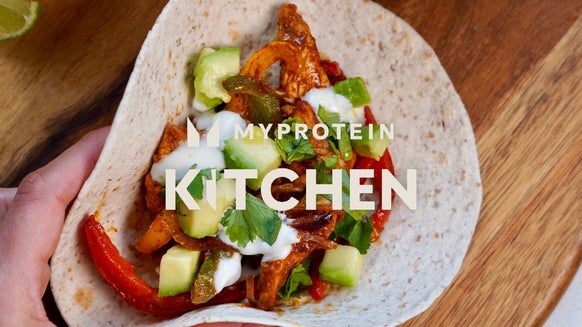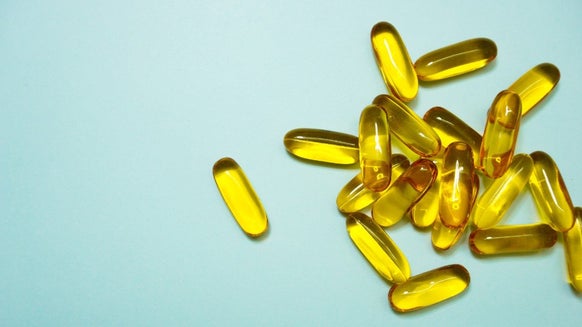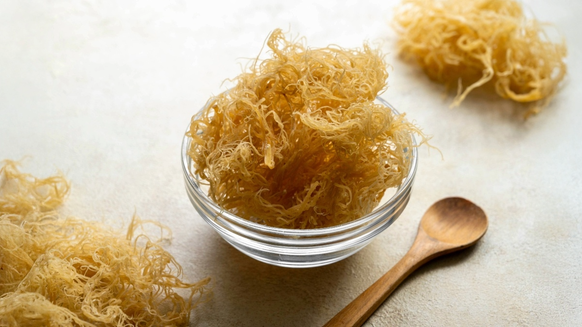What Is Trans Resveratrol? | Benefits, Side Effects, Dosage

Resveratrol is the reason behind the notion that drinking red wine can be positive for your health.
This polyphenol compound found in the skin of grapes has the science world in a tizzy as researchers from Harvard University have shown that mice fed with resveratrol amazingly had a 25% greater life expectancy than similar mice not exposed to resveratrol, and did not gain weight when given a high fat and high calorie diet (compared to controls) (1).
This article will explore the evidence behind the benefits of Resveratrol and specifically Trans Resveratrol, and also present some of the potential side effects.
- Polyphenols
- What is trans-resveratrol?
- What does trans-resveratrol do and what are it's benefits?
- Resveratrol studies
- Sources of trans-resveratrol
- Side effects & safety
- FAQs

Polyphenols
Polyphenols are a specific group of plant compounds which have been deemed to have positive health benefits. There are approximately 8,000 types in nature, of which resveratrol is one (2).
What is trans-resveratrol?
Trans-resveratrol is one of the isomers (molecule structures) of resveratrol, with cis-resveratrol being the other. Simply put, trans-resveratrol occurs with hydroxide atoms on opposite sides of the molecule, where cis- resveratrol has the hydroxide atoms on the same side.
Trans- resveratrol is deemed to have the greater biological activity of the two isomers (7).
Interest in resveratrol stems partially from the cardioprotective effects of drinking red wine (8).
Researchers postulate that a higher-than-average wine consumption in this population may protect them from having cardiology issues (9), and informs the extensive research into the components of wine to discover which elements provide this protective effect.
In 1992, resveratrol was examined more closely and identified as a key component of grape skin for this function (10-11).
What does Trans-Resveratrol do and what are its benefits?
The health benefits of trans-resveratrol are widespread and through various mechanisms this compound has been shown to prevent cell damage and help sustain health.
1. Trans-Resveratrol as an anti-oxidant
Firstly, a number of the systemic effects which resveratrol provides are through its capacity as an anti-oxidant and anti-inflammatory agent (16).
For example, resveratrol has the ability to induce activity of a key protein (PGC-1) which results in more cellular energy (e.g., muscle, brain, heart) to reduce cell damage (17-18).
2. Trans-Resveratrol may aid neuroprotection
Alongside the benefits to the cardiovascular system, resveratrol has also been seen to have a protective effect on the nervous system.
For a number of degenerative neurological conditions resveratrol seems to have a benefit in preventing degenerative changes.(34)
Trans-Resveratrol influences a variety of metabolic pathways to reduce the damage done to brain tissue over time (34).
3. Trans Resveratrol may have anti-aging properties
Probably one of the most amazing physiological mechanisms provided by resveratrol is related to its remarkable effect on the aging process. This mechanism revolves around a distinct group of enzymes called sirtuins, which are released in the presence of resveratrol.
It’s thought that the main function of these enzymes is in the promotion of survival and resistance to stress (44), and in some lower animal forms (yeast, worms and flies) the genes which encode sirtuins are associated with longer life (45-47). Incredibly this association is also seen in mammals (7).
Resveratrol Studies
One particular study (12) divided a group of rats into three groups dependent upon the diet to which the group was assigned: control vs high fat diet vs high fat diet AND resveratrol.
As you may expect the high fat diet group showed greater incidence of disease and died sooner, however those rats given resveratrol (alongside high fat diet) lived for as long as the control group.
They also showed reduced signs of chronic disease. The life span increase seen with resveratrol supplementation is considered due to its potent activation of a particular gene (which is critical to aging) called SIRT1 (48). The activation of this gene influences a number of processes and is particularly activated during periods of calorie restriction (seemingly as a survival mechanism) (49).
This is further supported with studies which show that resveratrol could extend the life of a particular species of fish by 59% with maintenance of brain and motor functions during aging (50).

Sources of Trans Resveratrol?
As already stated, wine is a common source of resveratrol, however in this sense not all wine is created equally.
Red wine (e.g., Pinot Noir) has a concentration of resveratrol up to 14mg per litre (7), while white wine has less than 0.1mg per litre. This would indicate the importance of grape colour when choosing a source of this compound.
However, even red grape juice only contains 0.5mg per litre and a whole grape contains up to 3.54µg per gram, thus indicating the importance of the concentration of resveratrol within the skin which is accentuated and accumulated in the wine making process.
Other sources of resveratrol are peanuts (max 1.92µg per gram) and the herb Japanese Knotweed which has a concentration of 0.524mg per gram (13).
The Compounding Pharmacy of America recommends clinical doses between 500-1500mg per day for treatment of disease, but a healthy person likely doesn’t need doses this high. Most supplements come in doses around 500mg.
Side Effects and Safety
Studies examining the effects of resveratrol show that supplementation is very safe for humans. For example, one particular study (52) showed that 5g of resveratrol daily showed no adverse effects.
Similar results were seen in another study (53) which supported the use of 4g per day for a period of 3 months with no side effects.
Take Home Message
Admittedly, the purpose of this article is not to convince you of the potential for resveratrol to boost your chances to achieve eternal life.
Instead, we just want to show you the potential benefits it can provide to aid your cardiovascular, metabolic and neurological health.
FAQs
What is Trans-veratrol?
Trans-veratrol is one of the isomers of resveratrol, researched to have anti-inlammatory and anti-oxidant properties.
What are the benefits of Trans-veratrol?
Trans-veratrol has been researched to have a number of properties, including anti-inflammatory, neuroprotective and anti aging.
What are sources of trans-veratrol?
Red wine, peanuts, and japanese knotweed have all been found to contain trans-veratrol.
What are the side effects of trans-veratrol?

Claire is a Registered Dietitian through the Academy of Nutrition and Dietetics and a board-certified Health and Wellness Coach through the International Consortium for Health and Wellness Coaching. She has a Bachelor of Science in Biology and a Master’s degree in Clinical Dietetics and Nutrition from the University of Pittsburgh.
Talking and writing about food and fitness is at the heart of Claire’s ethos as she loves to use her experience to help others meet their health and wellness goals.
Claire is also a certified indoor cycling instructor and loves the mental and physical boost she gets from regular runs and yoga classes. When she’s not keeping fit herself, she’s cheering on her hometown’s sports teams in Pittsburgh, or cooking for her family in the kitchen.
Find out more about Claire’s experience here.
- Smoliga, J.M., Bost, J. and Maroon, J.C., Potential Benefits of Resveratrol Supplementation for Optimizing Health and Preventing Chronic Disease. Antiaging Therapeutics, 11.
- Rahman I, Biswas SK, Kirkham PA. Regulation of inflammation and redox signaling by dietary polyphenols. Biochemical Pharmacology.2006;72:1439-1452.
- Howitz K, Sinclair D. Xenohormesis: Sensing the Chemical Cues of Other Species. Cell.2008;133:387-391.
- Howitz, K. T. et al. Small molecule activators of sirtuins extend Saccharomyces cerevisiaelifespan. Nature 425, 191–196 (2003).
- Lamming, D. W., Wood, J. G. & Sinclair, D. A. Small molecules that regulate lifespan: evidence for xenohormesis. Mol. Microbiol. 53, 1003–1009 (2004).
- Sinclair, D. A. & Howitz, K. T. in Handbook of the Biology of Aging (eds Masoro, E. J. & Austad, S. N.) 63–104 (Elsevier, Boston, 2006
- Baur JA, Sinclair DA. Therapeutic potential of resveratrol: the in vivo evidence. Nature Reviews.2006;5:493-506.
- Renaud S, deLorgeril M. Wine, alocohol, platelets, and the French paradox for coronary heart disease. Lancet. 1992;339:1523-1526.
- Nanji AA, French SW. Alcoholic beverages and coronary heart disease. Atherosclerosis.1986;60:197-198.
- Siemann, E. H. & Creasy, L. L. Concentration of the phytoalexin resveratrol in wine. Am. J. Eno. Vitic. 43, 49–52 (1992).
- Bielsalski HK. Polyphenols and inflammation: basic interactions. Current opinion in clinical nutrition and metabolic care. 2007;10:724-728.
- Baur JA, Pearson KJ, Price NL, et al. resveratrol improves health and survival of mice on a highcalorie diet. Nature. 2006;444:337-342
- Das S, Das DK. Anti-inflammatory responses of resveratrol. Inflammation & Allergy – Drug Targets. 2007;6:168-173.
- Jang, M. et al. Cancer chemopreventive activity of resveratrol, a natural product derived from grapes. Science 275, 218–220 (1997).
- Bradamante, S., Barenghi, L. & Villa, A. Cardiovascular protective effects of resveratrol.Cardiovasc. Drug Rev. 22, 169–188 (2004).
- Robb EL, Page MM, Wiens BE, Stuart JA. Molecular mechanisms of oxidative stress resistance induced by resveratrol: specific and progressive induction of MnSOD. Biochemical and Biophysical Research Communications.2008;367:406-412.
- Lagouge M, Argmann C, Gerhart-Hines Z, et al. resveratrol improves mitochondrial function and protects against metabolic disease by activating SIRT1 and PGC-1?. Cell.2006;127:1109-1122.
- Houten SM, Auwerx J. PGC-1?: Turbocharing mitochondria. Cell. 2004;119:5-7.
- Bost J, Smoliga JM, Bost KM, Maroon JC. Three Months Oral Supplementation of a Unique Polyphenol Mixture Improves Physical and Neurocognitive Performance Indicators in Sedentary Adults. Paper presented at: American College of Sports Medicine Annual Meeting; May 28-31, 2008; Indianapolis, IN.
- Smoliga JM, Bost J, Bost KM, Maroon JC. Three Months Oral Supplementation of a Unique Polyphenol Mixture Improves Physical and Neurocognitive Performance Indicators in Sedentary Adults. Paper presented at: Mid-Atlantic Regional Chapter of the AmericanCollege of Sports Medicine; November 2-3, 2007; Harrisburg, PA
- Kramer HF, Goodyear LJ. Exercise, MAPK, and NF-?B signaling in skeletal muscle. Journal of Applied Physiology. 2007;103:388-395.
- Schreiber L, McAnulty S, McAnulty L, et al. resveratrol and catechin administration blunts exerciseinduced oxidative stress and cytokine IL-8. Paper presented at: American College of Sports Medicine Annual Meeting; May 28-31, 2008, 2008; Indianapolis, IN.
- Elmali, N. et al. Effect of resveratrol in experimental osteoarthritis in rabbits. Inflamm. Res. 54, 158–162 (2005).
- Gronbaek, M. et al. Mortality associated with moderate intakes of wine, beer, or spirits. BMJ310, 1165–1169 (1995).
- Bohm, M., Rosenkranz, S. & Laufs, U. Alcohol and red wine: impact on cardiovascular risk.Nephrol. Dial. Transplant. 19, 11–16 (2004).
- Seigneur, M. et al. Effect of the consumption of alcohol, white wine, and red wine on platelet function and serum lipids. J. Appl. Cardiol. 5, 215–222 (1990).
- Demrow, H. S., Slane, P. R. & Folts, J. D. Administration of wine and grape juice inhibits in vivo platelet activity and thrombosis in stenosed canine coronary arteries. Circulation 91, 1182–1188 (1995).
- Wang, Z. et al. Dealcoholized red wine containing known amounts of resveratrol suppresses atherosclerosis in hypercholesterolemic rabbits without affecting plasma lipid levels. Int. J. Mol. Med. 16, 533–540 (2005).
- Fitzpatrick, D. F., Hirschfield, S. L. & Coffey, R. G. Endothelium-dependent vasorelaxing activity of wine and other grape products. Am. J. Physiol. 265, H774–H778 (1993)
- Lekakis, J. et al. Polyphenolic compounds from red grapes acutely improve endothelial function in patients with coronary heart disease. Eur. J. Cardiovasc. Prev. Rehabil. 12, 596–600 (2005).
- Szewczuk, L. M., Forti, L., Stivala, L. A. & Penning, T. M. Resveratrol is a peroxidase-mediated inactivator of COX-1 but not COX-2: a mechanistic approach to the design of COX-1 selective agents. J. Biol. Chem. 279, 22727–22737 (2004)
- Li, H. F., Chen, S. A. & Wu, S. N. Evidence for the stimulatory effect of resveratrol on Ca2+-activated K+ current in vascular endothelial cells.Cardiovasc. Res. 45, 1035–1045 (2000).
- Orallo, F. et al. The possible implication oftransresveratrol in the cardioprotective effects of long-term moderate wine consumption. Mol. Pharmacol. 61, 294–302 (2002).
- Anekonda TS. resveratrol – a boon for treating Alzheimer’s disease? Brain Research Reviews.2006;52:316-326.
- Anekonda TS. resveratrol – a boon for treating Alzheimer’s disease? Brain Research Reviews. 2006;52:316-326.
- Chen, Y., Tseng, S. H., Lai, H. S. & Chen, W. J. Resveratrol-induced cellular apoptosis and cell cycle arrest in neuroblastoma cells and antitumor effects on neuroblastoma in mice. Surgery 136, 57–66 (2004).
- Oshima, M. et al. Suppression of intestinal polyposis in Apc?716 knockout mice by inhibition of cyclooxygenase 2 (COX-2). Cell 87, 803–809 (1996).
- Zha, S., Yegnasubramanian, V., Nelson, W. G., Isaacs, W. B. & De Marzo, A. M. Cyclooxygenases in cancer: progress and perspective. Cancer Lett.215, 1–20 (2004).
- Khanduja, K. L., Bhardwaj, A. & Kaushik, G. Resveratrol inhibits N-nitrosodiethylamine-induced ornithine decarboxylase and cyclooxygenase in mice. J. Nutr. Sci. Vitaminol. (Tokyo) 50, 61–65 (2004).
- Li, Z. G. et al. Suppression of N-nitro somethylbenzylamine (NMBA)-induced esophageal tumorigenesis in F344 rats by resveratrol. Carcinogenesis 23, 1531–1536 (2002).
- Aziz, M., Afaq, F. & Ahmad, N. Prevention of ultraviolet-B radiation damage by resveratrol in mouse skin is mediated via modulation in survivin. Photochem. Photobiol. 81, 25–31 (2004).
- Kimura, Y. & Okuda, H. Resveratrol isolated from Polygonum cuspidatum root prevents tumor growth and metastasis to lung and tumor-induced neovascularization in Lewis lung carcinoma-bearing mice. J. Nutr. 131, 1844–1849 (2001).
- Tseng, S. H. et al. Resveratrol suppresses the angiogenesis and tumor growth of gliomas in rats. Clin. Cancer Res. 10, 2190–2202 (2004).
- Aggarwal, B. B. et al. Role of resveratrol in prevention and therapy of cancer: preclinical and clinical studies. Anticancer Res. 24, 2783–2840(2004).
- Guarente, L. & Picard, F. Calorie restriction — the SIR2 connection. Cell 120, 473–482 (2005).
- Kaeberlein, M., McVey, M. & Guarente, L. The SIR2/3/4 complex and SIR2 alone promote longevity in Saccharomyces cerevisiae by two different mechanisms. Genes Dev. 13, 2570–2580 (1999).
- Tissenbaum, H. A. & Guarente, L. Increased dosage of a sir-2 gene extends lifespan inCaenorhabditis elegans. Nature 410, 227–230 (2001).
- Mohar, D. S., & Malik, S. (2012). The Sirtuin System: The Holy Grail of Resveratrol?. Journal of clinical & experimental cardiology, 3(11), 216. https://doi.org/10.4172/2155-9880.1000216
- Howitz KT, Bitterman KJ, Cohen HY, et al. Small molecule activators of sirtuins extend Saccharomyces cerevisiae lifespan. Nature.2003;425:191-196.
- Sinclair DA. Toward a unified theory of caloric restriction and longevity regulation. Mechanisms of Ageing and Development. 2005;126:987-1002.
- Valenzano, D. R. et al. Resveratrol prolongs lifespan and retards the onset of age-related markers in a shortlived vertebrate. Curr. Biol. 16, 296–300 (2006).
- Alcendor RR, Gao S, Zhai P, et al. Sirt1 regulates aging and resistance to oxidative stress in the heart. Circulation Research. 2007;100:1512-1521
- Boocock DJ, Faust GES, Patel KR, et al. Phase I dose escalation pharmacokinetic study in healthy volunteers of resveratrol, a potential cancer chemoprotective agent. Cancer Epidemiology, Biomarkers & Prevention.2007;16:1246-1252
- Smoliga JM, Bost J, Bost KM, Maroon JC. Three Months Oral Supplementation of a Unique Polyphenol Mixture Improves Physical and Neurocognitive Performance Indicators in Sedentary Adults. Paper presented at: Mid-Atlantic Regional Chapter of the American College of Sports Medicine; November 2-3, 2007; Harrisburg, PA.







